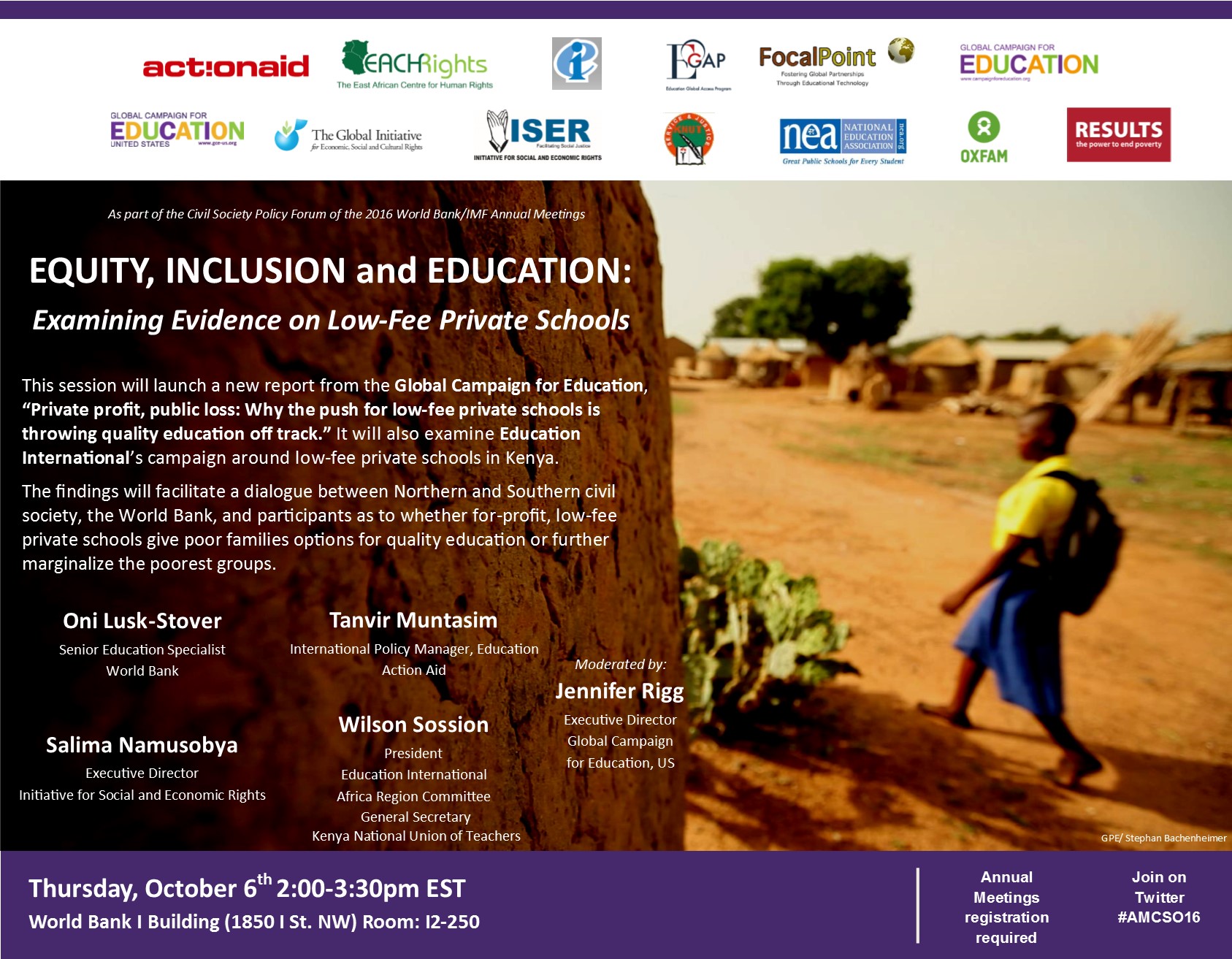New Research Examines Evidence around Low-Fee Private Schools at World Bank Annual Meetings
In the past months, the UN Human Rights Council urged states to “regulate education providers and invest in public education”, the UN Committee on the Rights of the Child recommended the UK to refrain “from funding for-profit private schools”, and the Government of Uganda has sought to close Bridge International Academies (a chain of low-fee private schools). Despite efforts from the international community, donors including the World Bank Group are still supporting low-fee, for-profit private schools.
Arguments around low-fee private schools’ investments from donors and parents point to better quality of education as the reason to invest $10 million, in the case of the International Finance Corporation (the World Bank’s private sector lending arm), or $6 per month, in the case of poor parents living in the slums of Nairobi. Until recently, there were no independent studies that could support or undermine the “better quality” argument. The World Bank Group has recently commissioned a randomized control trial to explore the quality of education provision of Bridge International Academies, a low-fee private school that is expanding rapidly in East Africa and elsewhere. Likewise, civil society organizations have commissioned their own studies seeking to answer the question: do low-fee private schools provide better quality education than public schools?
Among these efforts, the Global Campaign for Education along with a group of civil society organizations conducted a session titled “Equity, Inclusion, and Education: Examining Evidence on Low-Fee Private Schools” at the 2016 World Bank Annual Meetings Civil Society Policy Forum. Co-sponsors included:
- ActionAid International
- East African Centre for Human Rights – EACHRights
- Education International
- Education Global Access Program (E-Gap)
- Focal Point Global
- Global Campaign for Education
- Global Initiative for Economic, Social and Cultural Rights
- Initiative for Social and Economic Rights (ISER)
- Kenya National Union of Teachers
- National Education Association
- Oxfam International
- RESULTS Educational Fund
The panel was moderated by Jennifer Rigg, Executive Director for the Global Campaign for Education – US, and panelists included:
- Tanvir Muntasim, International Policy Manager for Education at ActionAid
- Salima Namusobya, Executive Director at the Initiative for Social and Economic Rights
- Wilson Sossion, President at Education International for the Africa Region Committee and General Secretary at Kenya National Union of Teachers
- Oni Lusk-Stover, Senior Education Specialist at the World Bank Group
The session launched a new research report examining the evidence around low-fee private schools “Private Profit, Public Loss” from the Global Campaign for Education. GCE’s report found no evidence pointing to low-fee for-profit schools as a better option for school provision than public schools. This finding was supported by reports from civil society organizations in Uganda and Kenya, as well as by Education International through a video exploring Bridge International Academies’ activities in Kenya.
The session ended with a presentation from the World Bank Group explaining its methodology for engagement with private actors when investing in education, along with a dialogue between civil society members, the World Bank Group, and interested parties questioning whether low-fee private schools are benefiting the poor.
The recording of this session is now available here and above.
